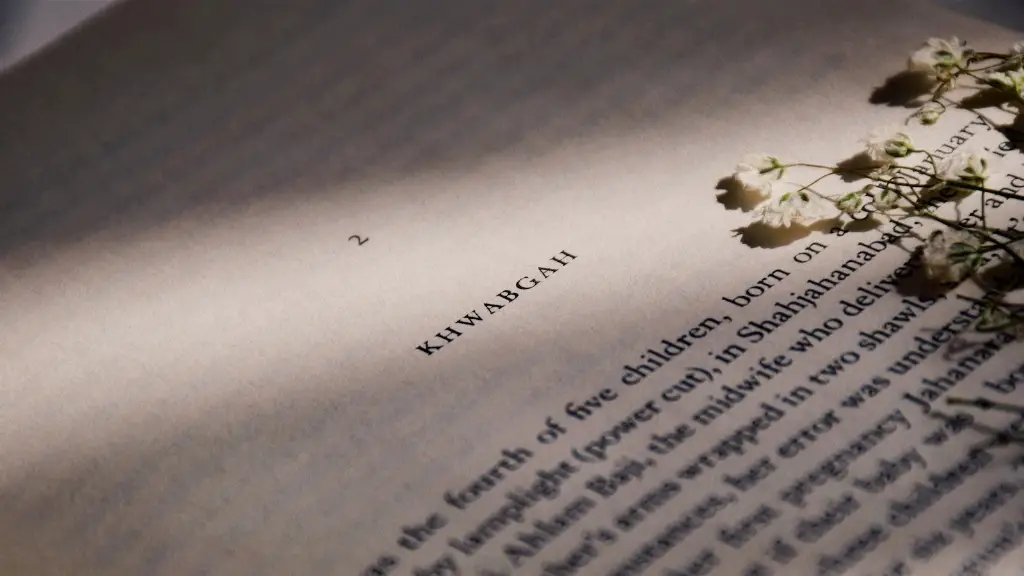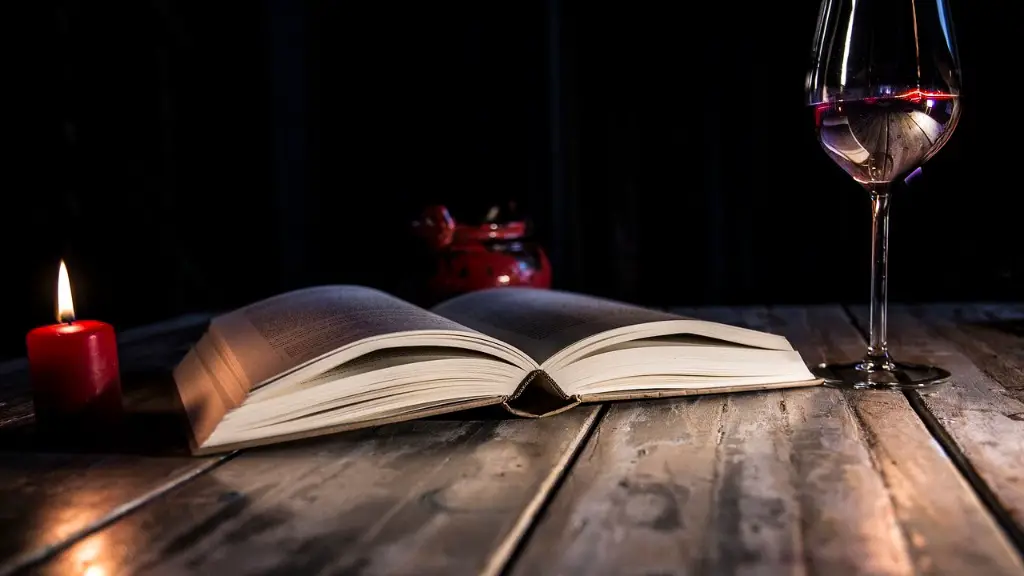Does poetry matter? This is the core question that underpins the centuries-long dialogue between those who cherish poetry and those who deride it. With the advent of the internet, this time-honored debate over the role of poetry in modern culture is still very much alive, but are there solid arguments for or against it? This article examines the emotional impact of poetry, as well as the perceived relevance, or lack thereof, of the genre.
As is often the case, the divide between those who value poetry and those who feel it is outdated is largely a generational one, with older poetic sensibilities often being in direct conflict with a younger generation more accustomed to film, rap, and internet culture. Despite this divide, there are many who view poetry as a necessary, time-honored way for people to communicate, and for their emotions to be heard without the use of words.
One of the primary reasons why many people are drawn to poetry is its ability to effectively shave away the rough edges of life and present the world in a unique, succinct and creative way. The economy of language that comes from writing poetically can be an effective way to explore ideas, express feelings, and evoke memories. The unique structure of poetry can be said to give it a special power and importance.
Poetry is an ancient craft, and as such has a long and storied past. It has been used to tell stories, lambaste social and political injustice, and invoke the divine. Unlike other forms of art and literature, poetry is able to draw on the ebb and flow of emotion in language, which may be why it has had such a long-held impact on generations of readers and audiences. The structure of poetry demands that a certain amount of emotion be expressed in as few thoughts as possible, a concept that readers may find quite compelling.
Of course, there is also the vehement opposition to poetry and its supposed irrelevance in a modern digital world. While it is true that the internet has had a profound effect on the consumption of stories and the way in which language is used, there is still something special about the experience of reading or listening to a poem. Those who deride the art may point out its antiquated style, or claim that poems have no real-world application, but for many readers, poetry is still as vibrant and relevant as ever.
At its core, it can be said that whether one loves or hates poetry, it is there and will continue to be a part of our culture for generations to come. Whether we employ it in everyday conversations, or use it to vent our emotions, there is still an understanding that one symbolic sentence can carry more weight than a hundred digital words. Poetry still matters.
The Power of Sounds and Rhyme
On a technical level, the parts of a poem are often as meaningful as the whole. Something as simple as the cadence of a line—the sounds and rhyme—is part of why people find a poem enjoyable to read aloud or out loud, or why it can also remain in one’s memory. Poems are sometimes written with performance in mind, whether read to an audience or composed on the page. Most of these pieces follow patterns of meter, rhythm, and rhyme, which is why they can be so effective when spoken aloud.
Rhythm and rhyme rely on similar sounds and syllables to create an almost musical essence to the poem when spoken. It also helps to give the poem momentum, and even conveys an incredible sense of urgency and importance. The famous poems such as “Invictus” by William Ernest Henley, “If” by Rudyard Kipling, and Anne Bradstreet’s more sedate “To My Dear and Loving Husband” all employ methods of rhyme to create a sonic experience.
The various techniques used by the poet—alliteration, assonance, consonance, and onomatopoeia—all add to the beauty of the poem. All these devices emphasize certain words and create an exuberance that often isn’t seen in people’s everyday speech. The sound of the poem pushes it to the fore and transports the speaker to a different world of emotion and understanding.
The Role of Poetry in Education
The importance of poetry in education is often understated. Poems are particularly helpful for our younger learners, who may enjoy the imaginative elements of a poem more than traditional prose. The patterns and structure of a poem often make it captivating for our youngest students. Poetry allows children to explore their emotions and express them in a creative, non-threatening way.
Second language learners often find it easier to read and memorize simple poems since they are built from few words that are repeated often, making them more accessible than longer reads. Poets employ metaphor and simile to create vivid images of things, so these can be explained in the context of a language lesson, allowing the learner to expand their vocabulary and make connections between words.
Poetry also allows people to experience new cultures without the need for lengthy background readings or explanations. Poetry can convey powerful messages accurately and quickly, allowing the reader or listener to gain a better understanding of cultures different from their own. In this way, poetry can help bridge differences, celebrating the creative commonalities of human experience.
The Impact of Poetry on Society
No discussion of the relevance of poetry can ignore its political and social impact. Poems have been written to bring attention to a range of topics, whether these are commentary on poor economic policies, to build empathy for of a group of people in distress, or to celebrate the successes of an entire nation. Through poetry, we can call attention to current events, to injustices in our community, or to questions faced by our society.
The power of poetry has been demonstrated over and over again, especially when it comes to communicating ideas that might otherwise be ignored. In times of political turmoil, for instance, poems have been used to express feelings of despair and outrage, but also to bring hope and solidarity. The power of a few poetic lines can be quite striking, bringing a strong emotional response to a wider audience.
The rise of social media has provided a platform for poets to reach a much larger audience, and this has only further opened up the possibility of using poetry to reach new generations. Social media sites have been used to disseminate information about political events, to mount protests and to even organize revolutions. In this digital age, the reach of poetry has been extended far beyond the books and pamphlets of old, connecting it to the world at large.
The Decline in Poetry Sales
Despite its numerous advantages, poetry is often seen as a dying art form. Poetry sales have been declining, especially when compared to other mediums such as film and television. This, along with the rise of digital publications, has led to a decrease in traditional print sales, as well as a decrease in the number of people who actively read poetry.
The lack of visibility for new poets, and the lack of resources for those who are writing, may be a key contributor to this decline in poetry sales. Finding a publisher willing to take a risk on a poet’s work, or having the financial means to self-publish, makes it difficult for newer or unknown writers to share their work. Also, the celebration of “mainstream” or known poets often serves to discourage unknown or independent poets from continuing.
These issues may have a significant impact on the relevancy of poetry in the future. Without new poets and new works to inspire readers, the relevance of the art form may decline even further. This is a situation that could have a major impact on how future generations engage with the written word.
The Value of Poetry
Despite the decline in print sales, and the entrance of new media into the public consciousness, poetry still has a place in society. There is, arguably, an even greater need for poetic expression in the digital age, as more and more people find themselves living increasingly isolated lives. The uniqueness of poetry, the economy of its expression, and the emotional impact it can have all make it valuable in a world of instant gratification.
Poetry—more than just a written form—has always been, and will always be, an intrinsic display of emotions, thoughts, and feelings. Its capacity to bring comfort and to express our innermost feelings is arguably unparalleled by other forms of art. Poetry will live on, even in a world dominated by digital media, for it is one of the few things that can truly capture the human experience in all its splendor.





